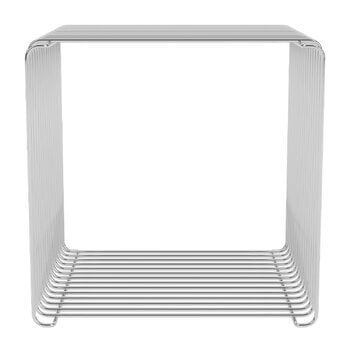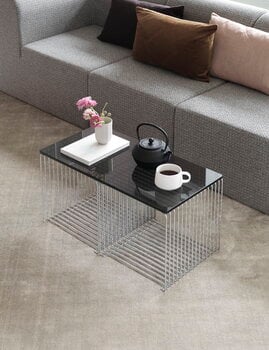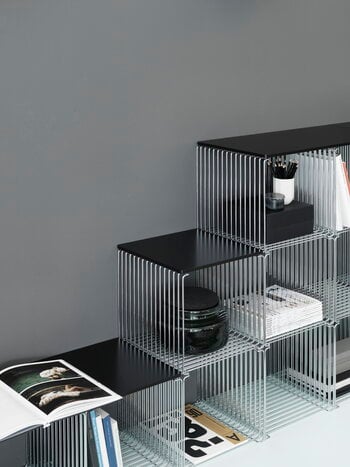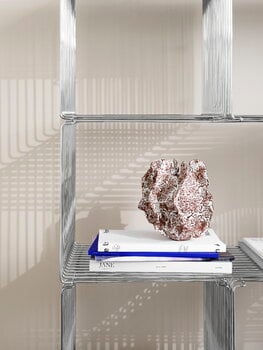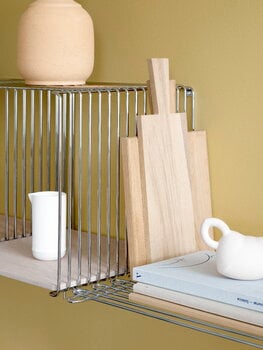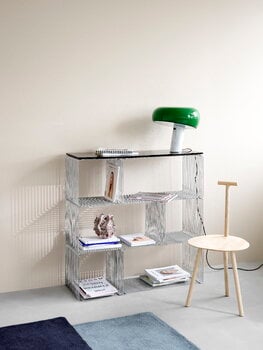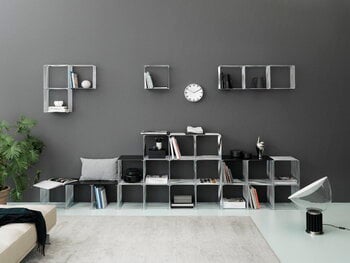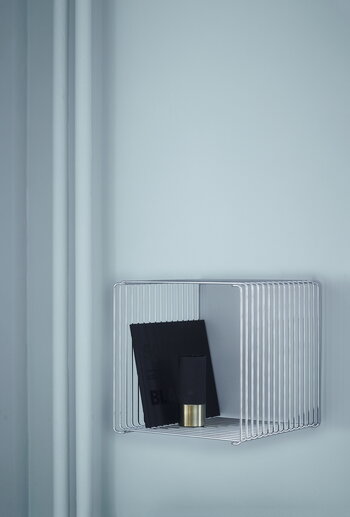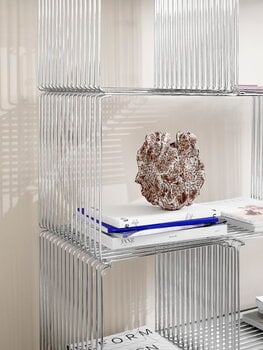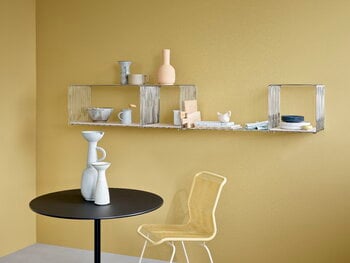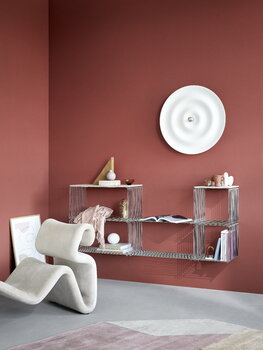Montana Furniture’s Panton Wire module is part of a modular shelving system created by the legendary Danish designer Verner Panton in 1971. The shelving system is characterized by simple, flowing forms and versatile adaptability. The Panton Wire modules are made from bent steel wire and available in a range of colours and sizes.
The Panton Wire system allows you to create a customizable storage solution to any room of the house. You can arrange the modules, shelves and panels into a free-standing bookshelf, mount them on the wall as a nightstand or kitchen shelf, or compose them into a room divider. The outcome is – typically for Verner Panton’s designs – industrial, elegant and airy at the same time. The Montana products have been manufactured in Denmark at the company’s own factory.
